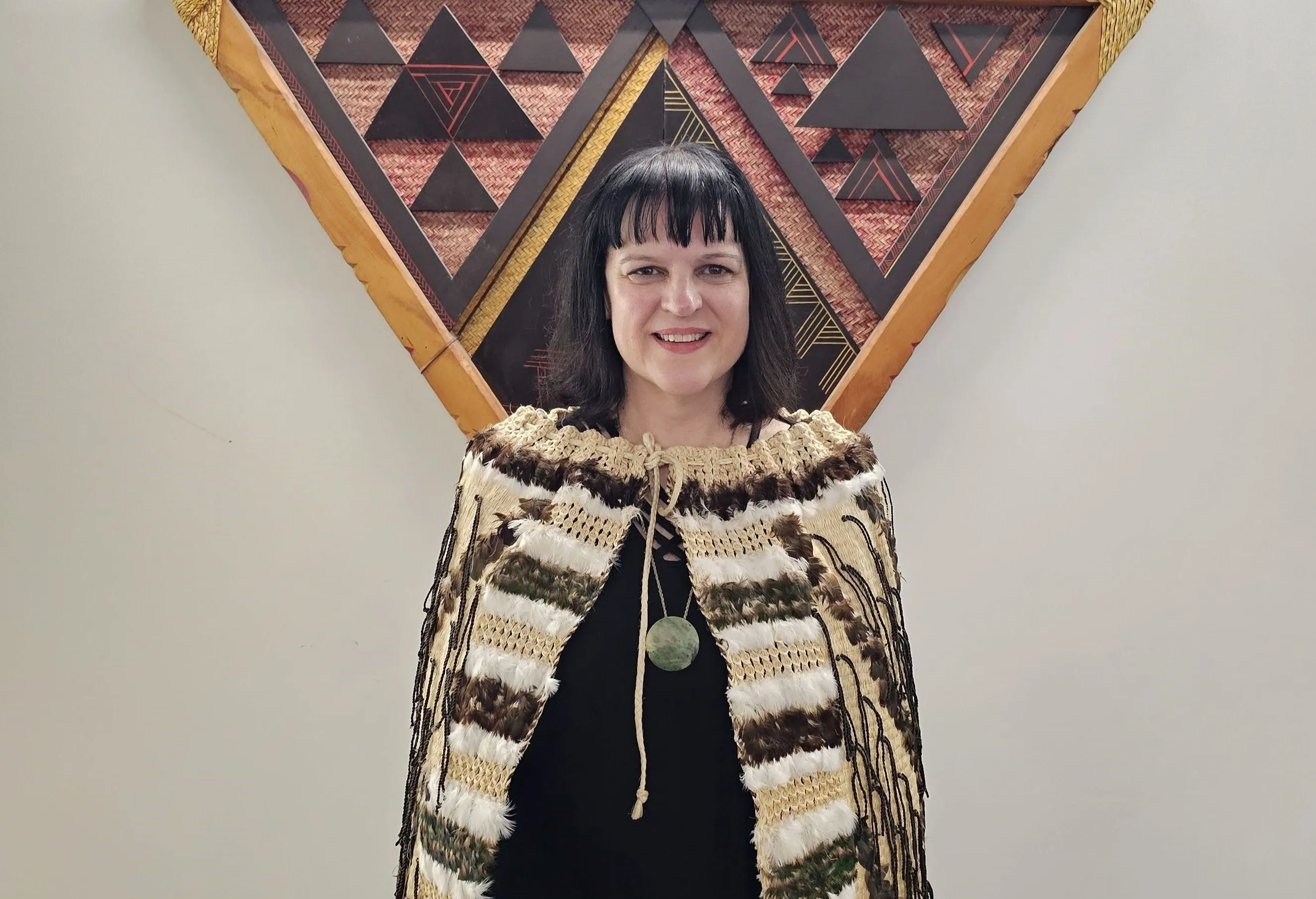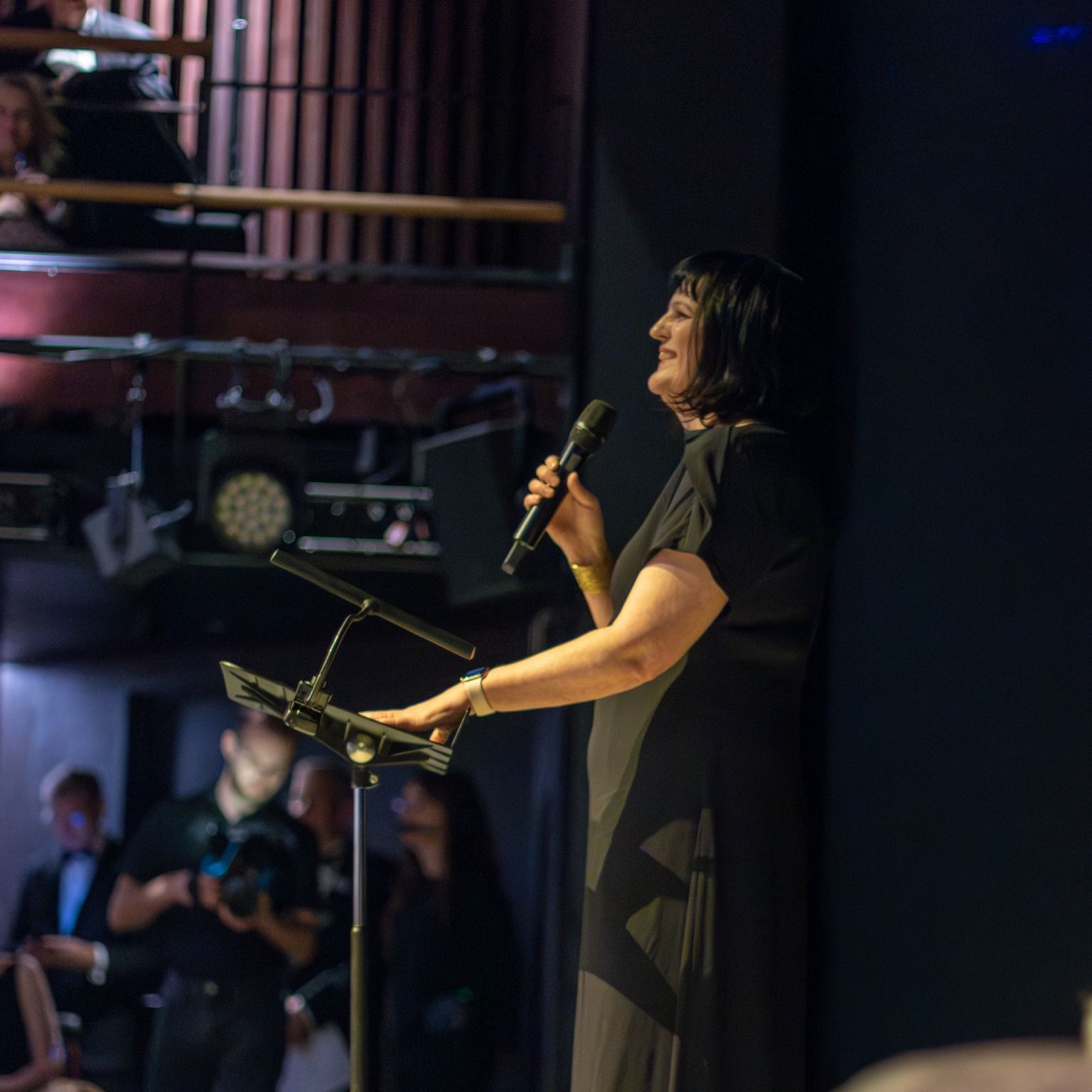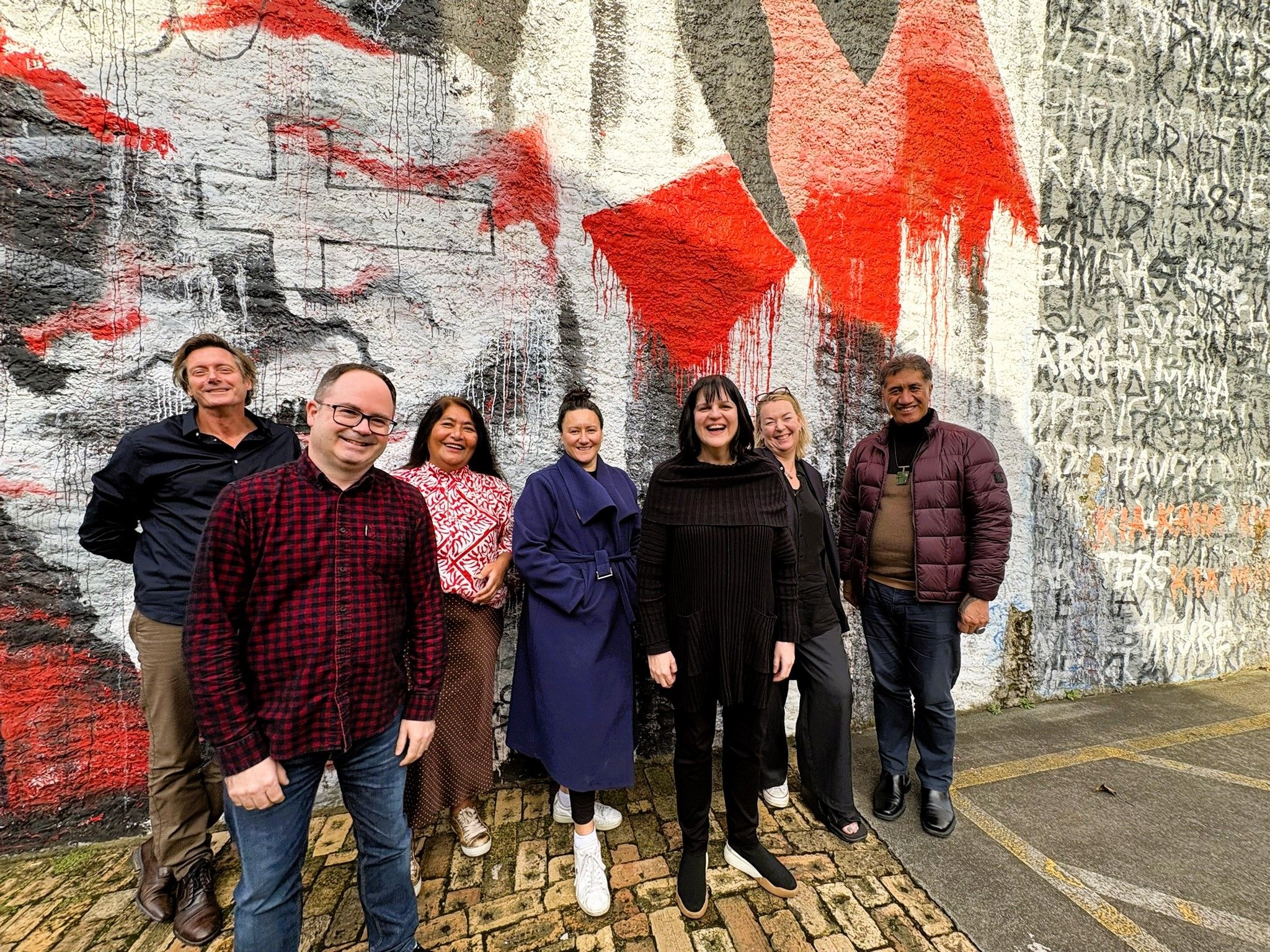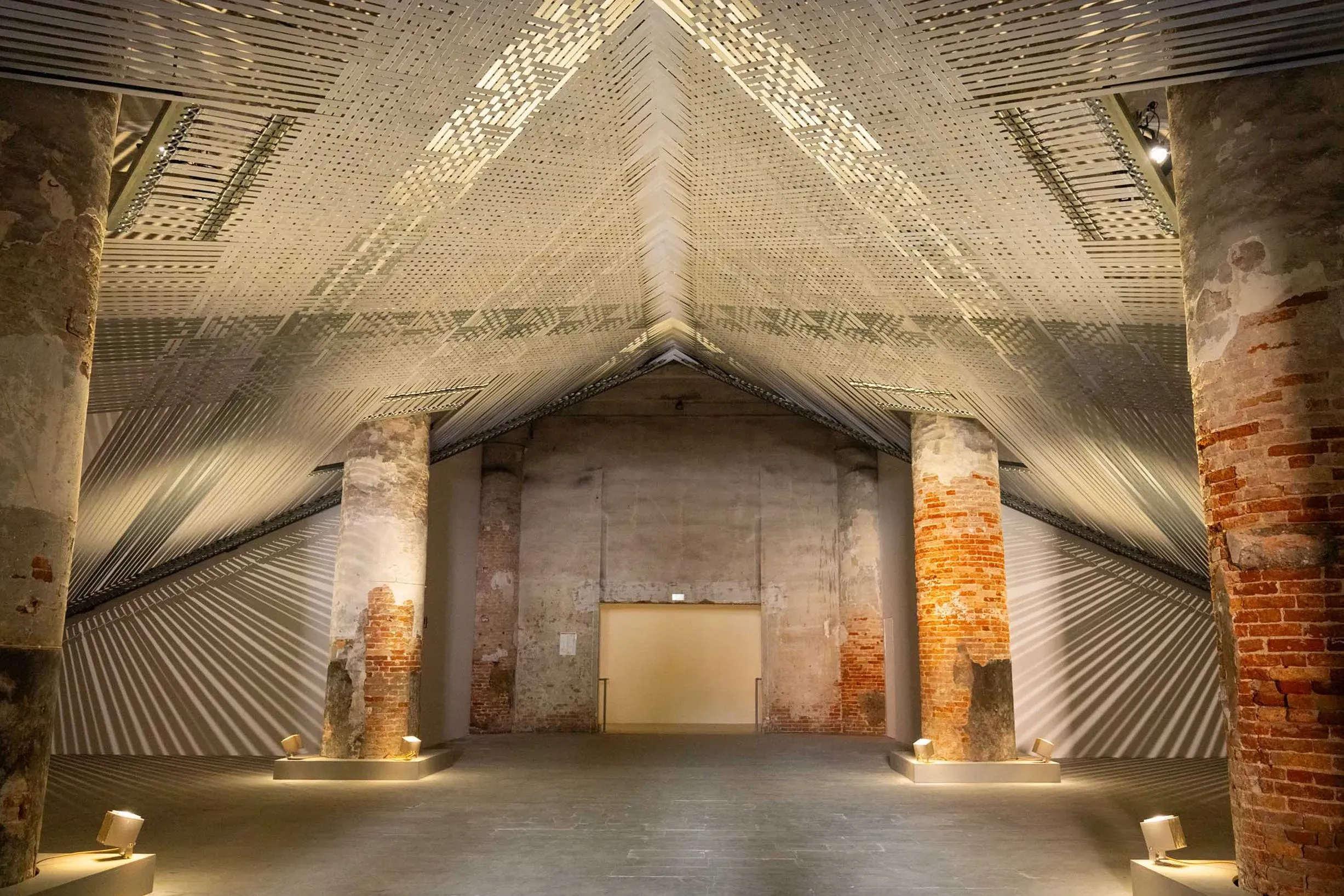"Tougher Than I've Ever Known" - In Depth With Creative NZ Chief Executive
In an extensive first interview as CNZ boss, Gretchen La Roche opens up on what's exciting her about the role, the challenges facing the sector and the way forward.

Gretchen La Roche’s reintroduction to Creative New Zealand is moving at a cracking pace.
While she’s barely had time to get her feet under the desk, it’s fair to say the first new CNZ Chief Executive in almost two decades has been busy. CNZ team meet and greets, information downloads on what’s happened in the 12 months she’s been away from the organisation, as well as meetings with the Arts Minister Paul Goldsmith, the Ministry of Culture and Heritage and the Arts Council.
In her first in-depth interview since taking over from Stephen Wainwright five weeks ago, La Roche told The Big Idea “There is a sense of some familiarity, but also quite a sense of newness.
“Things have moved on in the year or so since I left, and it is a very different role that has a different focus than what I was doing before. So there is a lot of new parts to learn, a lot of new relationships to connect in with and it's a different circumstance as well, just externally from when I left.
“So I hope people understand that it will just take me a little bit to get up to speed and running at full force - but we're getting there,” she smiles.
La Roche’s calendar has also been dotted with dates speaking to Cultural Agencies Chief Executives, other Ministries and local government entities, iwi representatives and key sector organisations like Te Māngai Pāho, Te Papa, NZSO, NZ Film Commission, NZ Opera, Christchurch Arts Gallery and the Christchurch Symphony Orchestra.
But you won’t hear La Roche complaining. That’s part of why she was widely considered the ideal candidate to take the role, from those on the outside looking in - she’s been in trenches, she understands what it’s like on the other side.
“That’s the arts and creative sectors - a lot of real dynamic stuff going on, lots of layers, lots of different demands, lots of different challenges out there. I think anyone working in our industry understands that idea of multiple balls in the air all at once, so that's not necessarily different.
“I’ve moved from having strongly regional focus in what I've been doing - working in the sector by and large - to now a national overview and thinking out beyond that as well, working across the whole wide arts eco-system.
“So it's sort of like an expansion. It's suddenly multiplied 10-fold, which is pretty thrilling.”
Christchurch closure
Her decision to leave her previous CNZ role of Senior Manager of Arts Development Services - in what turned out to be more of a sabbatical than a sayonara - was about more than a job, more than just extending her CV.
It was about finishing a chapter.
A little over a year ago, La Roche returned to her beloved Christchurch to help the Court Theatre navigate its the final stages of a long-awaited move into its new premises as its Executive Director.
La Roche knew first hand how much the city suffered. She was at the helm of the Christchurch Symphony Orchestra (CSO) during the devastation of the earthquakes.
“I reckon in Ōtautahi, there's that real consciousness that it's been more than just the dollar cost to get there. It's on the back of of loss; loss of what was before, loss of people, loss of time - all of those things.”

For La Roche, being part of the journey to the Court Theatre’s re-opening day was a rewarding experience.
“Staying the course and working through the red tape and the bureaucracy is a feat in itself. The patience of those people, especially at the Court - they had to go the distance. It was a real, real privilege. it really was an incredible opportunity and experience to be with them at the end of that.”
You get a real sense that lessons learned from the recovery has played an important part in La Roche’s development as a leader - pragmatic, empathetic and forward-thinking.
“I remember really distinctly sitting at the CSO going, jeez, here we are weeks down, houses still doesn't have sewage or power - and certainly no water in the near future. It's a big ask to support a symphony orchestra at this time when there's no where for us to play, theoretically.
“So it makes you dig deep into going ‘OK, how do we, quite literally, contribute to the rebuild? What is our role? What can that be?’ That opportunity to actually really be confronted with that - and to have to come up with those answers - is a rare and pretty special thing. It can throw up a whole lot of really interesting things in where you end up going.
“I kind of feel like all the experience of that, oddly, feeds into a little bit of what lies ahead and what I'm hopefully here to do. What is it that I can bring into this role with CNZ?”
Reality check
What La Roche has to bring is a fresh perspective.
It’s something she has been credited with with the part she played in changing CNZ’s grossly unpopular funding model into its current form - which she notes we’re starting to see the impact of, through a shift from projects into a broader investment focus.
But she’s not losing sight of the reality that is confronting the creative sector.
“Look, let's be honest - externally, things have got tougher again. If we thought it was a challenging environment post COVID, well, that has amplified further.
Population has grown, the dynamicism of our arts eco-system has has continued to grow and evolve - but the environment that we're all operating in is certainly very challenging. The economic circumstances of that are tougher than perhaps I've known before.”
La Roche gives praise to those at the coal-face for tackling the issues head on, rather than sticking their heads in the sand and waiting for someone to give them the answers.
“One of the big things that I am seeing - which also gives me some hope - is that I think people are now starting to really embrace the fact that this is not necessarily just ‘a moment in time’. There’s a lot of consideration of strategic thinking and vision in their work as individuals and also as organisations.
“So I think it’s really taking stock of where they're at, who they need to be, what they want to be doing. So just some conversations that I've been starting to have with people out there and people wanting to test some thinking and some ideas - that's very interesting to see as well.
“The circumstances that are feeding into that are very challenging and those are some of those circumstances I hope very much that, at CNZ, we will be really looking at, leaning into and expanding our focus around.”
Future thinking

Part of that will be the implementing of CNZ's 2040 long-term strategy -Tū mai rā, Toi Aotearoa. La Roche says it’s had strong support from its draft format through the consultation and feedback process.
“Good questions as well - ‘sounds good in principle, how are we going to do it?’ ‘Where's the money coming from?’ - but it's now really ready to progress, so it moves forward into final approval with the (Arts) Council, and then we'll be going out publicly with that in the upcoming months.”
How CNZ wields its influence over the sector through the revised strategy will be of significance - La Roche offers an insight into how that could shape.
“Yep, we are known for the funding part of what we do - and there's no doubt that investment in the arts is a really key thing for CNZ to be doing - but I think the really critical parts are really us looking at those areas that CNZ can seek to add the most value. The places that perhaps we can go, the conversations, the doors that we need to open, what we are mandated to do, to effectively focus in on raising the profile of arts and creativity.
“In particular, the comprehension and understanding the value that it contributes at all layers,” La Roche expands. “Until we really move that and amplify that, we are going to continue having the same conversation of defending its role - the belief that it's the ‘nice to have’, not ‘the need to have’.
“We need to get to a point where it is implicit and understood that it is not negotiable - it is fundamental to who we are and the health of our society. So we really need to expand the work in that or we are going to be having the same conversation over again.”
Going global
One of the key remits for CNZ has long been its role in not just advocating on a national level but helping take the art - and artists - of Aotearoa to the globe.
It often draws criticism that the overseas promotion of the creative sector can come at the cost of making sure the grassroots here at home are watered and nurtured.
La Roche doesn’t believe it is a case of the two being mutually exclusive.
“It's absolutely the balance of both because you can't really have one without the other. But I think it's probably fair to say - and this will come no surprise to many - that actually, we need to do a bit more thinking in the international space to make sure that we are match fit for the years to come.
“There's that development of thinking - of our people going out and viewing, visiting, participating for their own development. And then there's the taking out to the marketplace - on the stage, if you like - the work, the voice of Aotearoa New Zealand. So there is multiple layers in there.”
How that’s done has scope for improvement. La Roche states that it can be done more effectively, on an Arts Council to Arts Council/Government to Government basis, as well as “with the other major agencies and players in the international space based in New Zealand….which means we're not having to redistribute (the investment) from other areas.”

She continues “I don't want to sound Pollyanna-ish about this, but the bottom line - we have to think about ways we can maximise and increase the investment in the sector. We're creaking already as it is, and so there's no real gain in just moving the investment around. It has to expand.
“We can see there's massive interest in the work and the artists of Aotearoa New Zealand. We look at people like Black Grace -what they're doing out there in the international space - is incredible. The huge interest that was around the re-opening of the Oceania gallery at the Met in New York recently, the eyes that were on FestPAC (in Hawai’i), the opportunity that came through the presentation at Venice last year with Mataaho Collective’s win of the Golden Lion.
“I think we need to make sure that when we've got these international opportunities going, we are taking every opportunity to maximise; through the communications, the profiling, the way we're learning from it, the way we're sharing the learnings with everybody else, what we can leverage off.
“We've got to have a strategy to follow up on it so that we're not just throwing a lot of energy into something as a one-off, but actually we can open that pathway and those doors for many others to follow. There are many people that are operating out there in the international space from the voice of Aotearoa New Zealand - and we need to be making sure that we're working alongside them as well.”
Part two of our conversation with Gretchen La Roche will be published on Thursday, where we get her take on the current funding climate and what the future holds for financial backing within the sector.